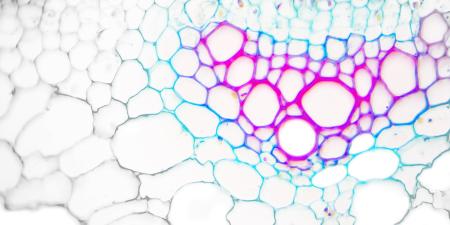Case
Greg, a third year medical student, is doing his surgery rotation at City Hospital. The surgery schedule has been relatively light, and the OR cases have consistently been completed before 1pm each day. One Friday morning the case was long and complicated, but when they finished Ryan, the chief resident, told everyone, "That's all we have for today. Hurry up and meet downstairs, so we can all go out for lunch."
The team went to a nearby restaurant where Ryan, Dave, the junior resident, and one of the interns ordered margaritas. Greg was surprised to find his colleagues drinking alcohol while they were technically still at work. Ryan and Dave each had a second drink, and they all talked and joked for a couple hours. Finally, Ryan decided, "Well, let's get back for afternoon surgery rounds, and if there's nothing else going on, we can all go home." As they were paying the bill, Dave turned to Greg and said, "See, doesn't this make you want to be a surgeon? Just this morning we cured a guy's stomach cancer, and by 1pm we're sitting outside enjoying drinks."
Greg went home that afternoon and discussed the situation with his roommate, who encouraged him to make the residents' actions known. Greg was worried that he would not receive a fair clerkship evaluation from the residents if he went through with it, and, instead decided to say nothing.
Commentary
Being on the wards presents more than just academic challenges for the average medical student. It is a time of anxiety for many as they adapt to a new environment filled with fresh, unfamiliar responsibilities. Evaluation is no longer based purely on traditional exams, and, often for the first time, students receive largely subjective assessments by house staff and attending physicians. It is natural for students to desire acceptance, approval, and praise from their evaluators, but do students compromise their values to fulfill their ambitions?
In this case, there are at least 3 distinct times when Greg faces an internal moral dilemma. In each situation, he must decide whether to act in accordance with what he knows is right or to hide his disapproval for what he perceives to be his own benefit. First, he witnesses the residents drinking alcohol when they are all still working. At this juncture, Greg has an opportunity to confront his superiors directly and question their actions. Second, upon returning to City Hospital, Greg must decide whether or not to ask his fellow residents about the appropriateness of participating in rounds after having consumed alcohol. Alternatively, he can bring this information directly to the attention of the attending physicians on the ward or other hospital staff. Finally, assuming the day had ended without incidence, Greg, after discussing the issue with his roommate, must decide whether or not to alert the clerkship director or appropriate hospital administration to the events of the day.
To understand the moral dilemma that Greg is faced with, it is necessary to appreciate the relationship between the interns and residents. As mentioned above, the desire for approval is quite strong among medical students on the wards, and any opportunity to impress or gain the favor of superiors is perceived by many students as a chance to advance their standing, evaluations, and overall grade. In particular, because interns and residents tend to be younger than attending physicians and more "in-tune" with medical student life, there is more potential for an informal and friendly relationship to develop between students and house staff. In Greg's case, being invited to the team lunch affords him the opportunity to develop a friendly, nonprofessional relationship, with the residents, which Greg undoubtedly hopes will win him favor and praise when it comes time for his evaluation.
At each of Greg's 3 moral junctures, there were a host of competing internal values—some personal interests, others general responsibilities—and complicating them all was the uncertainty that accompanies any pending decision or action. The moment that the house staff ordered margaritas at lunch, Greg could have asked whether it was responsible to drink alcohol at work. Even though no more surgeries were scheduled that day, it was entirely possible that a case from the morning would need to return to the operating room or that one of the patients on the unit would become acutely sick and require immediate medical intervention. The team's use of a substance that impairs judgment and slows reaction time would clearly place them at a clinical disadvantage and might result in significant adverse consequences for the patients. Though Greg clearly understood these implications, direct confrontation would have required him to overcome some major reservations. First, he might have thought it was unlikely that the residents would heed his advice. Second, he might have assumed that the house staff were good judges of their own capabilities and able to make informed, rational decisions without his input. Finally, and perhaps most noteworthy, Greg's hesitation might have stemmed from anxiety over upsetting or offending his superiors, an act that could possibly have jeopardized his standing.
The second time that Greg had to decide whether or not to step forward was upon returning to City Hospital. While making afternoon rounds on patients does not call for the same intense concentration as operating, it is still a form of medical care delivery. Many critical management decisions are made during rounds, minor procedures are performed, and there is an opportunity for patients to interact directly with their team of doctors. Surely any patient would be outraged if he or she were to find out that this young team had recently returned from lunch where they had consumed any amount of alcohol. Perhaps it occurred to Greg that, at this point, he had the opportunity to save the residents from potential embarrassment. What would have happened if the patients had smelled alcohol on their breath? Or what if the alcohol had caused the residents to forget a small, but crucial, detail and that had led to a larger catastrophe? If he is to act according to his ethical beliefs, then he must, again, overcome his reservations. But, in this case, Greg also has other possible avenues of action. He could page the supervising attending physician, seek out a different chief resident, or ask for the advice of another medical student. Perhaps what Greg really needed in order to step forward was affirmation of his uneasiness and encouragement to act on his observations from a third party; his inaction might well have been the byproduct of insecurity and inferiority.
Finally, having suppressed his concerns throughout the afternoon, Greg goes home and relates the experience to his roommate. For the first time, Greg has validation of his concerns, and perhaps he now feels more strongly that he should have intervened earlier, but he is still worried about his clerkship grade. This is a natural human response and, while it is easy to pass judgment on Greg for his inaction, his self-interested concerns are not unwarranted. It is in these times that the medical community must seek to promote, encourage, and reward self-regulating behaviors. Greg should have been given, in advance, the support that would have made it possible for him to come forward the moment he felt it necessary. This encouragement, for example, could originate from the clerkship director or the attending surgeon, who could ensure students that if they speak up when they observe something controversial, they will not find their standing or grade compromised because of that action.
In the end, actions, or inactions, cannot be judged purely on their outcomes. Just because nothing terrible happened that afternoon does not mean that Greg can exonerate himself from responsibility for being a silent bystander in a series of actions that he viewed as inappropriate, unprofessional, and reckless. This lack of professional initiative goes directly to the heart of self-regulation within the field of medicine. Too often, inappropriate and unprofessional actions pass unchecked because they do not have harmful consequences, and this only serves to reinforce negative value systems. The dangers are many. Not only does the house staff reinforce the notion that having a drink or 2 at work is nothing out of the ordinary, but Greg learns that he can blind himself to the actions of his peers and superiors for the sake of self-preservation.
Self-regulation must begin with an infrastructure and culture that support the outward expression of professional values shared by the medical community. However, it is also imperative that individuals in this community continually practice and insist on these values by enforcing them both personally and professionally.



